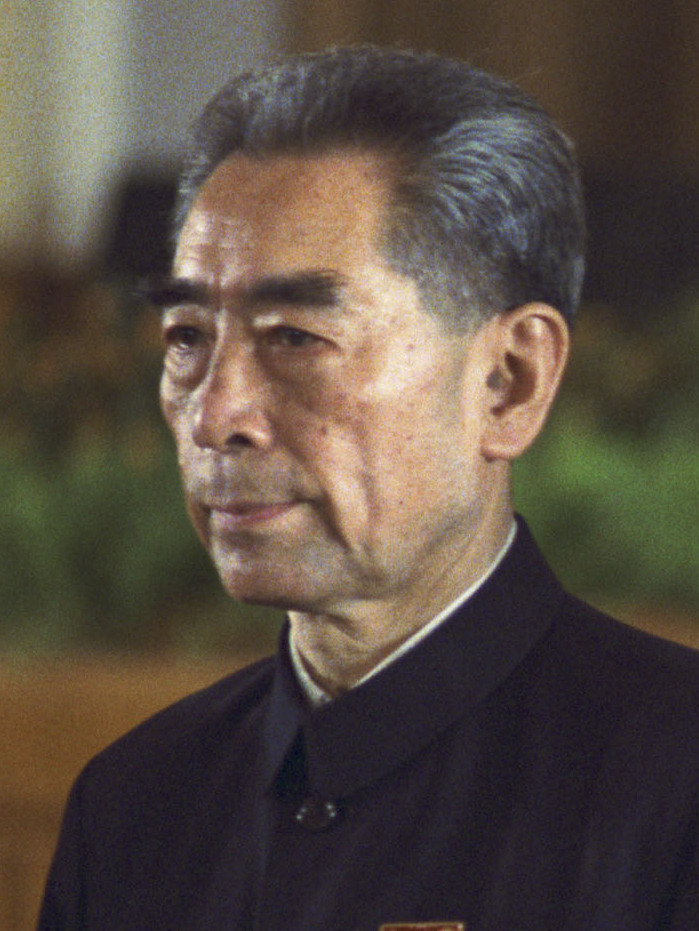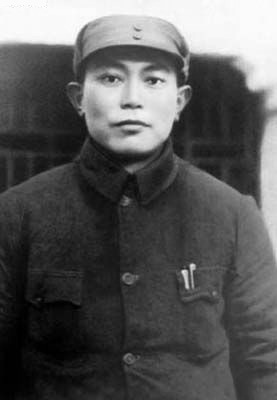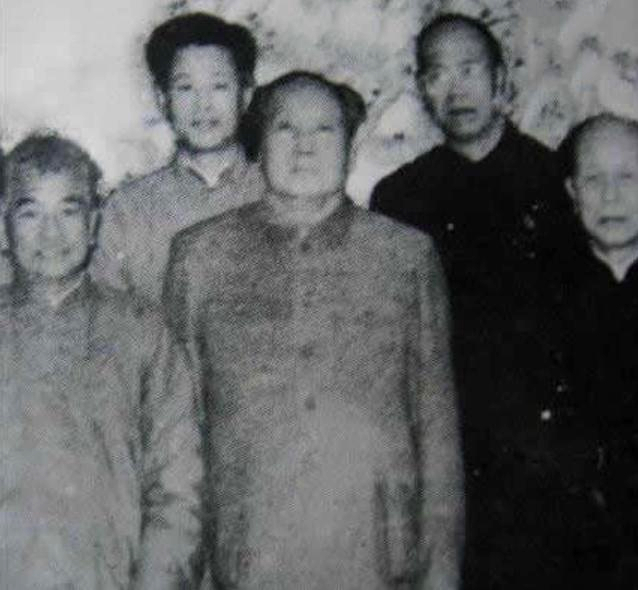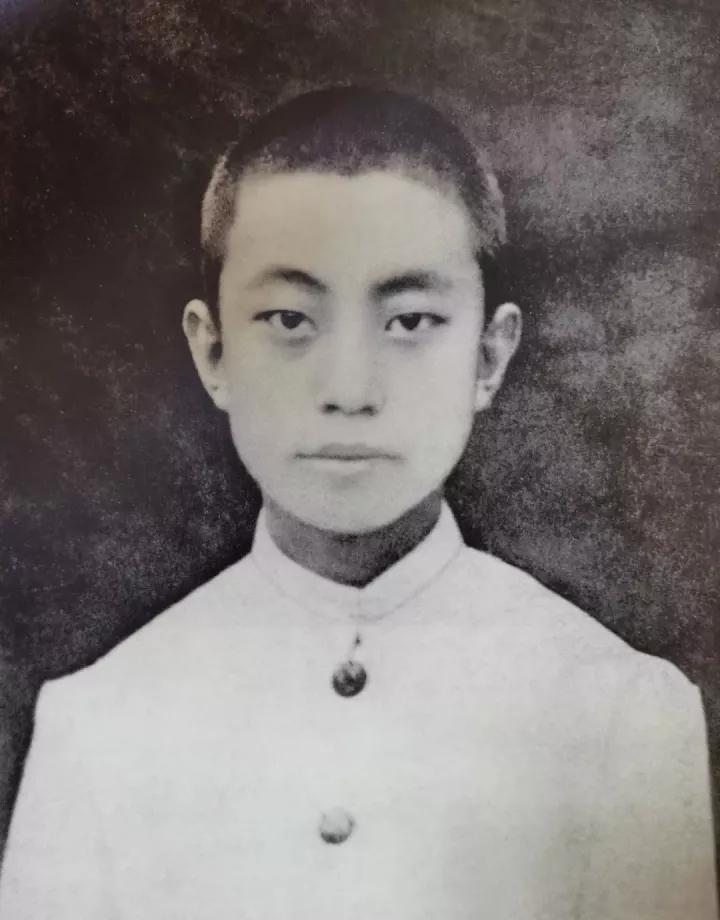|
Chinese Foreign Minister
The Minister of Foreign Affairs of the People's Republic of China (; ''Zhōnghuá Rénmín Gònghéguó Wàijiāobù Bùzhǎng'') is the head of the Ministry of Foreign Affairs of the People's Republic of China and one of the country's most important cabinet posts. The Minister usually is also a member of the Central Committee of the Chinese Communist Party. Process of appointment According to the Constitution of the People's Republic of China, the Minister is nominated by the Premier and confirmed by the National People's Congress or its Standing Committee.Article 62 (5) of the Constitution of the People's Republic of China. List of officeholders References External links Official English website of the PRC Ministry of Foreign Affairs {{PRChina-gov-stub China China, officially the People's Republic of China (PRC), is a country in East Asia. It is the world's most populous country, with a population exceeding 1.4 billion, slightly ahead of Ind ... [...More Info...] [...Related Items...] OR: [Wikipedia] [Google] [Baidu] |
National Emblem Of The People's Republic Of China
The National Emblem of the People's Republic of China contains in a red circle a representation of Tiananmen Gate, the entrance gate to the Forbidden City, where Mao Zedong declared the foundation of the People's Republic of China (PRC) in 1949. Above this representation are the five stars found on the national flag. The largest star represents the Chinese Communist Party (CCP), while the four smaller stars represent the four social classes as defined in Maoism. The emblem is described as being "composed of patterns of the national flag": ...The red color of the flag symbolizes revolution and the yellow color of the stars the golden brilliant rays radiating from the vast red land. The design of four smaller stars surrounding a bigger one signifies the unity of the Chinese people under the leadership of the Communist Party of China (CPC). —China Yearbook 2004 The outer border of the red circle shows sheaves of wheat and the inner sheaves of rice, which together represent ... [...More Info...] [...Related Items...] OR: [Wikipedia] [Google] [Baidu] |
Chen Yi (marshal)
Chen Yi (; August 26, 1901 – January 6, 1972) was a Chinese communist military commander and politician. He served as Mayor of Shanghai from 1949 to 1958 and as Foreign Minister of the People's Republic of China, Foreign Minister of China from 1958 to 1972. Early life Chen was born in Lezhi County near Chengdu, Sichuan, into a moderately wealthy magistrate's family. War A comrade of Lin Biao from their guerrilla days, he was prominent in the Jiangxi Soviet. Later, due to a leg injury, he was the only one of the later Ten Marshals to have not participated in the Long March. Thus, Chen was later made a commander under Ye Ting in the New Fourth Army. After the Wannan Incident, Chen succeeded Ye Ting as commander of the New Fourth Army during the Sino-Japanese War (1937-1945). He played a pivotal role as commander of the 3rd Field Army working closely with his close friend and comrade Su Yu. When Su Yu showed his expertise and talent in large formational warfare, the divisio ... [...More Info...] [...Related Items...] OR: [Wikipedia] [Google] [Baidu] |
Yang Shangkun
Yang Shangkun (3 August 1907 – 14 September 1998) was a Chinese Communist military and political leader, President of the People's Republic of China (''de jure'' head of state) from 1988 to 1993, and one of the Eight Elders that dominated the Party after the death of Mao Zedong.Yang Shangkun (Yang Shang-kun) (1907-1998) in ''China at war: an Encyclopedia'', edited by Xiaobing Li, pp. 512–514, ABC-CLIO, 2012. Born to a prosperous land-owning family, Yang studied politics at Shanghai University and Marxist philosophy and revolutionary tactics at Moscow Sun Yat-sen University. He went on to hold high office under both Mao Zedong and later Deng Xiaoping; from 1945 to 1965 he was Director of the General Office and from 1945 to 1956 Secretary–General of the Central Military Commission (CMC). In these positions, Yang oversaw much of the day-to-day running of government and Party affairs, both political and military, amassing a great deal of bureaucratic power by controlling ... [...More Info...] [...Related Items...] OR: [Wikipedia] [Google] [Baidu] |
Qian Qichen
Qian Qichen (; 5 January 1928 – 9 May 2017) was a Chinese diplomat and politician. He served as Chinese Communist Party (CCP) Politburo member from 1992 to 2002, China's Foreign Minister from April 1988 to March 1998, and as Vice Premier from March 1993 to March 2003. Since then, no other diplomat-turned-politician has attained such a lofty status in China's political hierarchy. Qian played a critical role in shaping China's foreign policy during CCP general secretary Jiang Zemin's administration, and was a key player handling the return to Chinese sovereignty of Hong Kong and Macau. He was in charge of border negotiations with the Soviet Union in the 1980s, resulting in a successful settlement of the border dispute and the thawing of the relations between China and Russia. He was also instrumental in handling China's normalization of relations with the West in the difficult period after the Tiananmen Square protests of 1989. Life and career Qian Qichen hailed from a promin ... [...More Info...] [...Related Items...] OR: [Wikipedia] [Google] [Baidu] |
Li Xiannian
Li Xiannian (pronounced ; 23 June 1909 – 21 June 1992) was a Chinese Communist military and political leader, President of the People's Republic of China (''de jure'' head of state) from 1983 to 1988 under Paramount Leader Deng Xiaoping and then Chairman of the Chinese People's Political Consultative Conference from 1988 until his death. He was a full member of the Politburo from 1956 to 1987, and of its Standing Committee from 1977 to 1987.''Li Xiannian (1909–1992)'', in Christopher R. Lew, Edwin Pak-wah Leung: ''Historical Dictionary of the Chinese Civil War'', p.p. 120-121, Scarecrow Press, 2013Holley, David"Li Xiannian, Ex-President of China, Dies at 83: Old Guard: He was one of a ruling clique of ‘8 elders’ who ordered the army to repress the pro-democracy movement in 1989".''Los Angeles Times'', 23 June 1992. Li worked as an apprentice carpenter in his teenage years to support his family. He joined the Communist Party in December 1927 and became a soldier in th ... [...More Info...] [...Related Items...] OR: [Wikipedia] [Google] [Baidu] |
Wu Xueqian
Wu Xueqian (December 19, 1921 – April 4, 2008) was a Chinese politician and diplomat who served as the Foreign Minister and Vice Premier of the People's Republic of China. Biography Wu was born in Shanghai in 1921. He joined the Communist Party of China in 1939. In his youth he was engaged in Communist underground work in Shanghai, serving for a period of time as deputy secretary and acting secretary of the Shanghai Students' Committee of the Communist Party. In June 1949, he was designated representative of China National Federation of Democratic Youth to the World Federation of Democratic Youth in Prague. After the founding of the People's Republic of China, he served as Deputy Director General and Director General (1949–1958) of the International Liaison Department of the Central Committee of the Youth League (renamed as the Communist Youth League later), Director General (1958–1978) and Vice Minister (1978–1982) of the International Liaison Department of CCCPC, Firs ... [...More Info...] [...Related Items...] OR: [Wikipedia] [Google] [Baidu] |
Zhao Ziyang
Zhao Ziyang ( zh, 赵紫阳; pronounced , 17 October 1919 – 17 January 2005) was a Chinese politician. He was the third premier of the People's Republic of China from 1980 to 1987, vice chairman of the Chinese Communist Party (CCP) from 1981 to 1982, and CCP general secretary from 1987 to 1989. He was in charge of the political reforms in China from 1986, but lost power in connection with the reformative neoauthoritarianism current and his support of the 1989 Tiananmen Square protests. Zhao joined the Chinese Communist Party (CCP) in February 1938. During the Second Sino-Japanese War, he served as the chief officer of CCP Hua County Committee, Director of the Organization Department of the CCP Yubei prefecture Party Committee, Secretary of the CCP Hebei-Shandong-Henan Border Region Prefecture Party Committee and Political Commissar of the 4th Military Division of the Hebei-Shandong-Henan Military Region. During the Chinese Civil War of 1945-1949, Zhao served as the Deputy ... [...More Info...] [...Related Items...] OR: [Wikipedia] [Google] [Baidu] |
Huang Hua
Huang Hua (; ; January 25, 1913 – November 24, 2010) was a senior Communist Chinese revolutionary, politician, and diplomat. He served as Foreign Minister of China from 1976 to 1982, and concurrently as Vice Premier from 1980 to 1982. He was instrumental in establishing diplomatic links of the People's Republic of China with the United States and Japan, and was intensely involved in the negotiations with the United Kingdom over the status of Hong Kong. Biography Huang Hua was born Wang Rumei in Ci County, Hebei Province in 1913. He was one of the early students at Yenching University in Beijing, where he learned excellent English and developed a close relationship with John Leighton Stuart, the American missionary who founded Yenching. In 1936, he joined the Communist Party of China at Yenching, and assumed the name Huang Hua. Later that year, he accompanied American journalist Edgar Snow to the Communist base in Yan'an, acting as the interpreter between Snow and the Communis ... [...More Info...] [...Related Items...] OR: [Wikipedia] [Google] [Baidu] |
Huang Hua (1978)
Huang Hua (; ; January 25, 1913 – November 24, 2010) was a senior Communist Chinese revolutionary, politician, and diplomat. He served as Foreign Minister of China from 1976 to 1982, and concurrently as Vice Premier from 1980 to 1982. He was instrumental in establishing diplomatic links of the People's Republic of China with the United States and Japan, and was intensely involved in the negotiations with the United Kingdom over the status of Hong Kong. Biography Huang Hua was born Wang Rumei in Ci County, Hebei Province in 1913. He was one of the early students at Yenching University in Beijing, where he learned excellent English and developed a close relationship with John Leighton Stuart, the American missionary who founded Yenching. In 1936, he joined the Communist Party of China at Yenching, and assumed the name Huang Hua. Later that year, he accompanied American journalist Edgar Snow to the Communist base in Yan'an, acting as the interpreter between Snow and the Communis ... [...More Info...] [...Related Items...] OR: [Wikipedia] [Google] [Baidu] |
Hua Guofeng
Hua Guofeng (; born Su Zhu; 16 February 1921 – 20 August 2008), alternatively spelled as Hua Kuo-feng, was a Chinese politician who served as Chairman of the Chinese Communist Party and Premier of the People's Republic of China. The designated successor of Mao Zedong, Hua held the top offices of the government, party, and the military after the deaths of Mao and Premier Zhou Enlai, but was gradually forced out of supreme power by a coalition of party leaders between December 1978 and June 1981, and subsequently retreated from the political limelight, though still remaining a member of the Central Committee until 2002. Born and raised in Jiaocheng, Shanxi, Hua was educated at the Jiaocheng County Commercial School and joined the Chinese Communist Party (CCP) in 1938, seeing action in both the Second Sino–Japanese War and the Chinese Civil War as a guerrilla fighter.Ye Yonglie, 邓小平改变中国——1978:中国命运大转折 (Deng Xiaoping Changed China-1978: China ... [...More Info...] [...Related Items...] OR: [Wikipedia] [Google] [Baidu] |
Qiao Guanhua
Qiao Guanhua (; March 28, 1913 – September 22, 1983 ." ''''. January 28, 2008. Retrieved on October 22, 2010.) was a politician and diplomat in the People's Republic of China and played an important role in the talks with United States on the opening of China and the drafting of the . Early life and revolution Qiao Guanhua was born in in 1913; his father was a local land-o ...[...More Info...] [...Related Items...] OR: [Wikipedia] [Google] [Baidu] |




